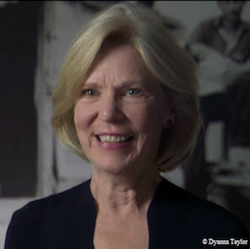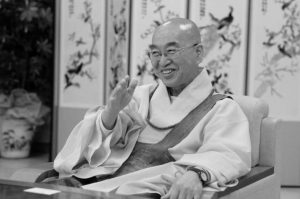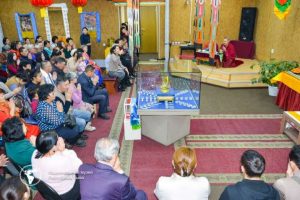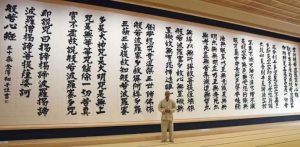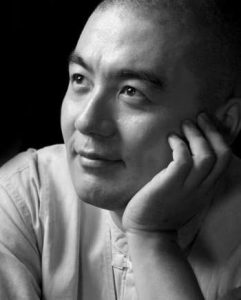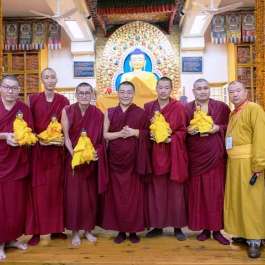
A new policy research center has been unveiled this week at the University of California, Berkeley’s Institute for Research on Labor and Employment (IRLE). Titled the Climate and Society Center, the initiative is aimed at addressing climate change with a strong emphasis on equity and well-being.
According to an announcement from the IRLE, the center will be coordinated by Prof. Clair Brown of the Department of Economics and Prof. Julia Walsh of the Department of Public Health. The stated goal is to produce research and analysis that can guide lawmakers in developing policies to reduce greenhouse gas emissions while accounting for the needs of marginalized communities.
“We did research on a city council bill in the city of Richmond about ending coal exports,” said IRLE spokesperson Ana Fox-Hodess. “We looked at the economic and health impacts of coal exports in support of the bill, and in part as a result of this analysis, the city council voted to end coal exports in Richmond.” (Local News Matters)
Prof. Brown, a former IRLE director, is the author of Buddhist Economics: An Enlightened Approach to the Dismal Science (Bloomsbury Press, 2017), a work that the center cites as foundational to its mission. Prof. Brown’s book questions conventional economic assumptions by highlighting altruism, social interdependence, and environmental respect. One online video linked to the center’s site poses the question: “Our economic focus on increase and consumption isn’t working, is there a different model?” (Local News Matters)
Fox-Hodess stated that the Climate and Society Center would fund faculty and collaborative projects with community groups. “As an endowed research center, that means they will be able to put money behind funding faculty and funding collaborations between faculty and community groups and also money to do outreach to policymakers in the form of analysis and proposals,” she noted. “This center in particular is going to look at the costs and benefits of different policies on vulnerable communities.” (Local News Matters)
The center’s objectives include creating an archive of economic policies worldwide that effectively share wealth and reduce suffering. Another project involves assessing the net social and environmental benefits of state and national economies, generating data that can support or critique legislative proposals. Local policy analysis is also planned: “We looked at the economic and health impacts of coal exports,” Fox-Hodess reiterated, referencing past research IRLE conducted on a Richmond bill that led to a 2020 decision to end coal shipments and storage by 2026. (Local News Matters)
Among the first projects is an examination of a proposal to establish a buffer zone between oil and gas facilities and residential areas. “The center is now studying a new bill that will measure the health and social benefits of keeping a 3,000-foot [914-meter] buffer zone between oil and gas sites and homes and schools,” Fox-Hodess said. (Local News Matters)
Background research suggests that Buddhism in the United States, while diverse, has often been associated with values of compassion and mindful living. With growing concern over climate change, many American Buddhist communities have shown interest in combining spiritual perspectives with scientific research to foster sustainable practices. In this context, Prof. Brown’s Buddhist Economics aligns with a broader shift among some Buddhist practitioners, who see caring for the environment as part of a compassionate, engaged practice.
However, not all economic theorists agree that divestment from fossil fuels is the most efficient route to curbing emissions. Some maintain that technological innovation and market incentives play a bigger role. Still, the Climate and Society Center underscores the potential for policy measures to bring about necessary structural changes.
According to IRLE officials, the new center is expected to work collaboratively within the UC system and with government agencies, in the hope of presenting findings that guide decisions aimed at reducing carbon emissions and improving the welfare of disadvantaged communities. Observers note that this approach—balancing scientific insight, economic modeling, and concern for equity—reflects an emergent trend in public policy thinking.
The center has identified several key research priorities, including studying the public health consequences of climate change and ways to mitigate them, ensuring worker health and safety in new climate conditions, and rigorously analyzing proposed climate policies with particular attention to distributional outcomes. Additional efforts focus on equitably transitioning to a zero-carbon economy, as well as “engaging community organizations and policymakers in designing policies that rapidly reduce greenhouse emissions and improve quality of life of vulnerable communities.” (UC Berkeley)
See more
Climate and Society Center (UC Berkeley)
Pollution reduction, Buddhist economics focus of new research center at UC Berkeley (Local News Matters)
Buddhist Economics Focus Of New UC Berkeley Research Center (Patch)
Related news reports from BDG
The University of Hong Kong hosts International Buddhist Values and Economics Conference
Mangalam Research Center to Host Conference on the Future of Mindfulness
Dharma Realm Buddhist University Professor Receives Fulbright Award for Research in India
Texas Professor Earns Fulbright Grant to Research Buddhism in Taiwan
Related features from BDG
Vienna in the Silicon Pure Land, Part 3: Reimagining Buddhist Economics
Buddhist Economics: Toward a Happier Society
Buddhist Economics with George Kinder: Creating a Mindful Golden Civilization
The Buddhist Economics of Buddhist Economics
Bringing the Dharma to the Dismal Science: The Buddhist Economics of Prof. Clair Brown




